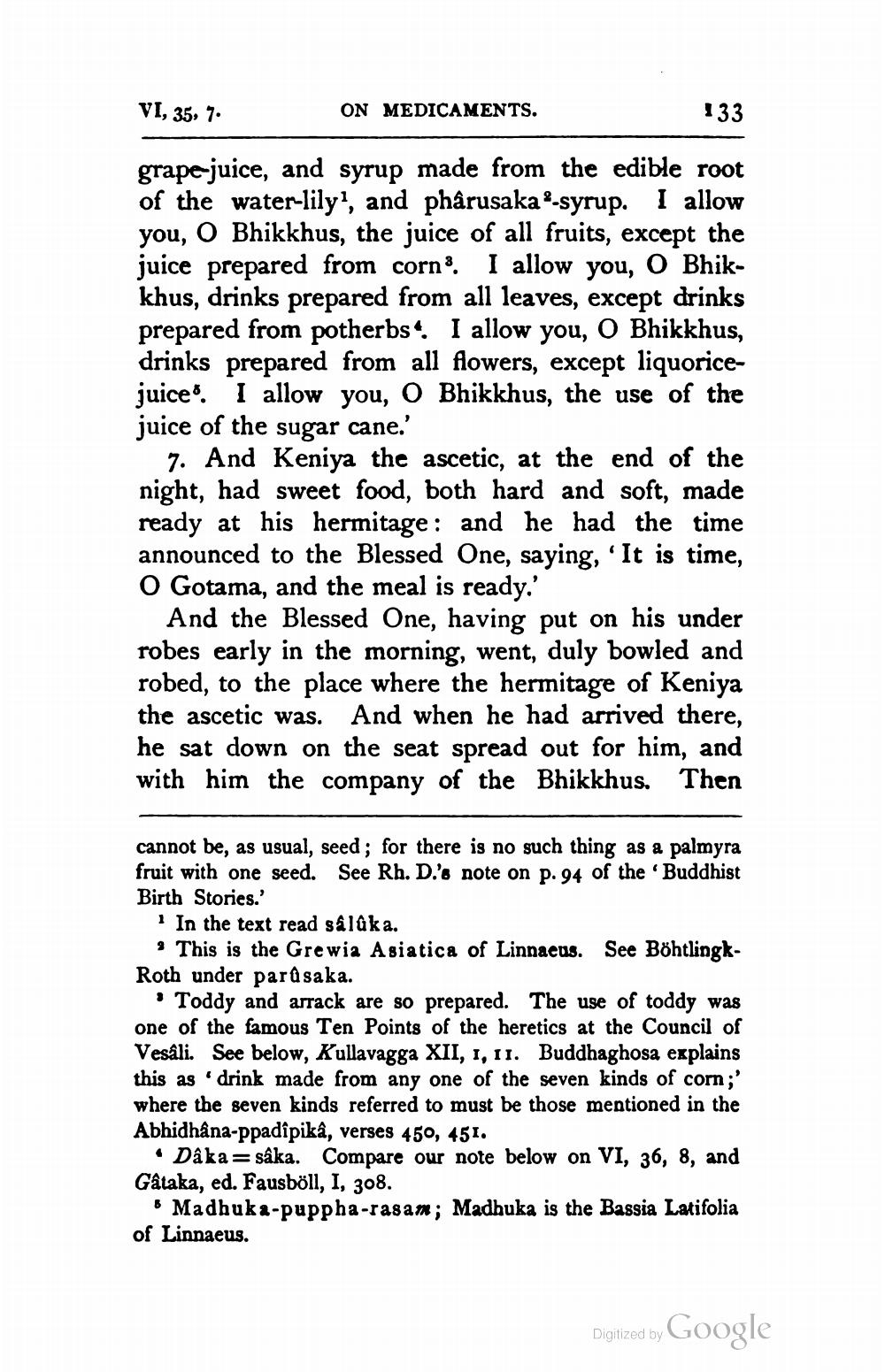________________
VI, 35, 7.
ON MEDICAMENTS.
133
grape-juice, and syrup made from the edible root of the water-lily?, and phârusaka-syrup. I allow you, O Bhikkhus, the juice of all fruits, except the juice prepared from corn8. I allow you, O Bhikkhus, drinks prepared from all leaves, except drinks prepared from potherbs“. I allow you, O Bhikkhus, drinks prepared from all flowers, except liquoricejuiceo. I allow you, O Bhikkhus, the use of the juice of the sugar cane.
7. And Keniya the ascetic, at the end of the night, had sweet food, both hard and soft, made ready at his hermitage: and he had the time announced to the Blessed One, saying, 'It is time, O Gotama, and the meal is ready.'
And the Blessed One, having put on his under robes early in the morning, went, duly bowled and robed, to the place where the hermitage of Keniya the ascetic was. And when he had arrived there, he sat down on the seat spread out for him, and with him the company of the Bhikkhus. Then
cannot be, as usual, seed; for there is no such thing as a palmyra fruit with one seed. See Rh. D.'s note on p. 94 of the Buddhist Birth Stories.'
1 In the text read sálaka.
9 This is the Grewia Asiatica of Linnaeus. See BöhtlingkRoth under parûsaka.
• Toddy and arrack are so prepared. The use of toddy was one of the famous Ten Points of the heretics at the Council of Vesali. See below, Kullavagga XII, 1, 11. Buddhaghosa explains this as 'drink made from any one of the seven kinds of corn;' where the seven kinds referred to must be those mentioned in the Abhidhâna-ppadîpikâ, verses 450, 451.
• Dâka=sâka. Compare our note below on VI, 36, 8, and Gâtaka, ed. Fausböll, I, 308.
• Madhuka-puppha-rasan; Madhuka is the Bassia Latifolia of Linnaeus.
Digitized by
Digitized by Google




